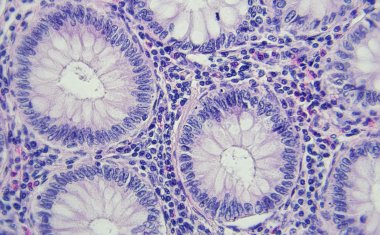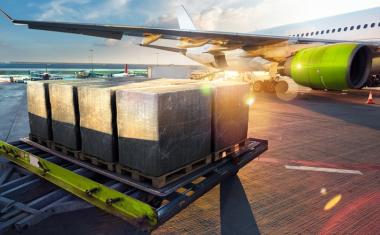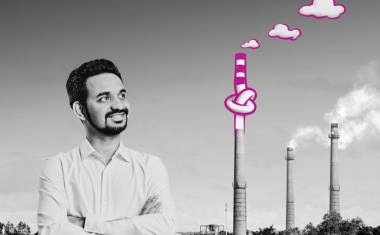Novozymes: Producing More with Fewer Resources

Transition - The world is moving toward more sustainable solutions for almost all aspects of daily life, be it with effective detergents that clean clothes at low temperatures or through the use of agricultural waste in the production of biofuels. This fits perfectly into the game plan of industrial biotech companies such as Novozymes. The Danish company - best known for its clout in the production of enzymes - is taking part in a public private partnership to accelerate the commercialization of bio-based products in Europe. Brandi Schuster asked company VP Lars Hansen about the importance such products, in Europe, worldwide and also for Novozymes.
CHEManager Europe: The EU Commission recently proposed a €3.8 billion Public Private Partnership (PPP) on Bio-based Industries in order to accelerate the commercialization of bio-based products in Europe. What does this mean for participant companies like Novozymes?
Lars Hansen: The PPP is about enabling the transition towards the bio-based economy by focusing EU research and innovation funding on demonstration and deployment activities. Its objective is to deploy most mature project by financing demo and real production scale activities (at least five flagship advanced bio-refineries), which will pave the way for next generation bio-based products and commercial deployment wave.
This is a key priority for Novozymes and should ultimately create business opportunities for our technologies (enzymes and microorganisms). Besides, the PPP is not only a funding opportunity, it is also the European Union embracing the bio-based economy vision and putting it high on the political agenda of the 28 Member States.
How important are bio-based products "made in Europe" for the industry?
Lars Hansen: Our ultimate goal is to see a network of advanced biorefineries across Europe that are able to provide cost-competitive, more sustainable and better alternatives to today's oil based products and materials. These alternatives include advanced biofuels, biochemicals and biomaterials - all based on locally sourced and refined biomass and waste. This is important because it will play an important role not only in mitigating climate and reducing our dependence on fossil resources, but also in spurring sustainable growth and boosting Europe's competitiveness.
The development of the bio-based economy in Europe will contribute to re-industrialize and revitalize rural areas, thus providing tens of thousands of high-skilled research, development, and production jobs over the next decade, jobs that are solidly anchored in Europe's diverse regions; it is estimated that the global revenue potential of the entire biomass value-chain for biorefineries could exceed 200 billion euro by 2020. This is critical at a time where Europe is trying to get out of recession and is looking for sustainable growth opportunities.
In the bio-based economy, the use of oil is complemented by using biomass as the most important raw material. Instead of oil refineries, the bio-based economy will have huge biorefineries using all kinds of biomass such as household waste, straw and corn cobs.
The technology is here, and a biorefinery is able to produce all the products we get from oil today, e.g. transportation fuel, chemicals, and textiles. In Denmark the Maabjerg Energy Concept signifies a biorefinery; and in Crescentino, Italy, Novozymes and Beta Renewables have delivered solutions to the world's first full scale advanced biofuel plant.
As another evidence of the technology, BASF, Cargill, and Novozymes announced that they have achieved a milestone in producing bio-based acrylic acid process from renewable raw materials.
Is Europe making a comeback in terms of being a preferred production area? How can companies with European production sites compete with those who produce in low-cost regions?
Lars Hansen: This is not about Europe becoming a preferred production area. It is about realizing that Europe has a significant biomass potential that can be used sustainably to produce a series of bio-based products, starting with advanced biofuels, biochemcials, and biomaterials.
Bloomberg New Energy Finance has estimated that by 2030, 150 million tons of agricultural residues will be available in the EU, which could replace 68% of its annual gasoline consumption by 2030 with advanced biofuels, saving CO2 and reducing GHG emission from gasoline related road transport by 54%, and creating almost 1.18 million jobs between 2010 and 2030 mainly in rural areas.
It is important to note that the PPP will not do it all. Although the PPP and the €1 billion public funding are needed and highly welcomed, the PPP is just one instrument to kick-start the bio-based vision. If Europe is to harness the long term economic benefits, we need political leadership and policy coherence.
Most importantly, other policy areas need to be aligned and support the transition towards a bio-based economy along the value chain - particularly agricultural policy (the CAP) to incentivize the harvest and collection of agricultural residues energy, and climate policy to mandate the use of advanced biofuels in transport and cohesion policy in order to direct some of the structural funds investments into commercial scale projects.
What regions hold the most potential for Novozymes?
Lars Hansen: If you look at the world as whole, we have seen increased activity and dedicated policies in different places. Brazil has a huge ethanol industry based on sugar canes and government, and the industry is seeking ways to utilize the leftover biomass as this can also be used for production of biofuel and other bio products.
In China, the government has chosen to state, in its new Five Year Plan, that biotechnology is a preferred technology. This will help to move the industry, and within the next five years or so it is expected that the development of bioenergy made from waste materials will start moving in China as well as Brazil.
Brazil and China are at the center of developing biomass used for energy while the development in Europe has not been so strong.
The U.S. has had a dedicated policy for bioethanol made from corn for many years. This whole industry has created more than 400,000 jobs and supplies the US with 10% of its fuel. The US is also starting to take off when it comes to production of biofuel made from waste materials, but due to e.g. the financial crisis, the development has slowed down a bit.
The deployment of biofuel made from biomass waste is essential for the development of a bio-based economy as a whole, because it is the first and most important step to produce all the things we get from oil today. And as mentioned - the technology is ready and can be used today.
Sustainability is a term that gets used ad nauseam in all industries across the board. How does Novozymes define sustainability as a company?
Lars Hansen: We believe that sustainability is rooted into our DNA. Biotechnology is all about producing more with fewer resources, and our solutions, e.g. enzymes for industrial use, help our customers to produce more with less energy consumption, and are able to, in many cases, replace harsh chemicals.
Let's take one example: on a global scale, the textile industry produces of T-shirts every year. A life cycle assessment (LCA) conducted by Novozymes indicates savings of 70,000 liters of water and one ton of CO2 per ton knitted fabric when enzymes are used. This equals savings of 20-30 liters of water and a reduction of 0.3 kg CO2 for each T-shirt produced!
So, we believe that we can change the world together with our customers and we have set specific targets to do so: We will enable a 75 million-ton reduction in CO2 emissions by 2015 through our customers' application of our products, and we will reduce our CO2 emissions by 50% by 2015 compared to 2005. We have already come a long way on both targets.
We work to document the sustainable benefits, e.g. we do so in the form of Life Cycle Assessments for all our industries, and all our work is founded in a sustainability policy.
Last but not at last, Novozymes has a big production. Our production of enzymes is a fermentation process where we use carbon hydrates; products that have grown on a farm field. When production is done, all of our leftover biomass is recycled and used as fertilizer on farm fields. All this has collectively helped to earn respect from the world outside of Novozymes. For example, in 2012, Novozymes was the awarded the most sustainable company in the "Biotechnology" sector of the Dow Jones Sustainability Index. The company headed the rankings in its sector for the eleventh time.
Biopharma only made up 1% of Novozymes' 2012 sales; how much potential does this market sector have?
Lars Hansen: We believe that there will be good long-term development in our pharma business, and today we are the world leader in supplying recombinant products and technologies to the medical device and drug delivery market.
A bio-based economy goes much further than pharma. As you can use biotechnology to produce all the products we get from oil today, the potential is enormous. The transition from an oil based economy to a bio-based economy holds the potential to transform not only Novozymes and the market, but also our world as a whole. What this will mean to Novozymes is too early to determine. As mentioned, Bloomberg New Energy Finance has done a report stating that the global revenue potential of the entire biomass value-chain for biorefineries could exceed €200 billion by 2020.
Visit Novozymes at the CPhI 2013 in Frankfurt Oct. 22-24 in hall 6.2, booth E47





